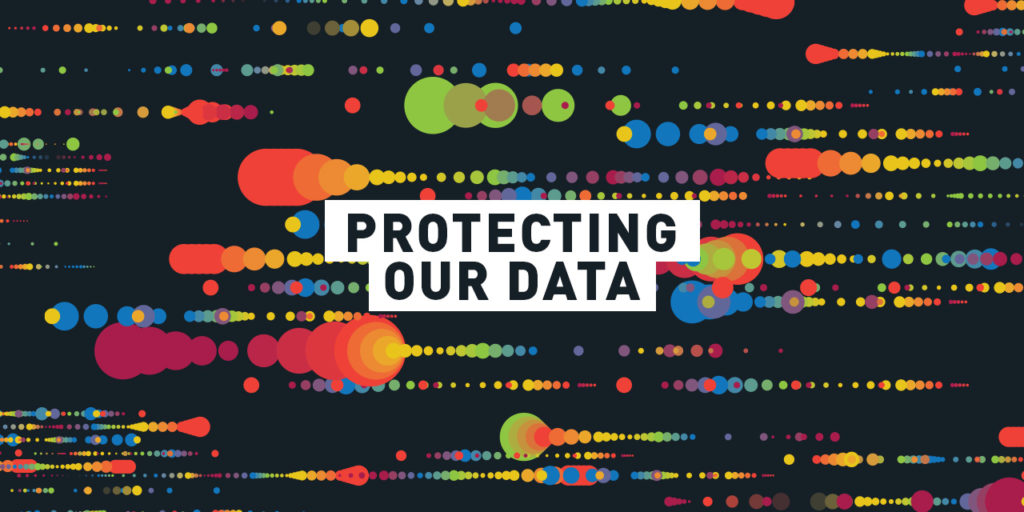In response to a Senate hearing on privacy featuring predominantly industry voices, members of civil society and privacy experts are organizing a coordinated, real-time response to take place over Twitter.
Tomorrow, February 27, at 10:00 am ET, the U.S. Senate Committee on Commerce, Science, and Transportation will convene a public hearing to discuss “Policy Principles for a Federal Data Privacy Framework in the United States.” Internet users whose data passes through the United States currently have very little legal protection when it comes to understanding and controlling how their personal information is stored, used, and shared by private companies, and implementing a strong, user-focused data protection framework is key to defending privacy in the digital age.
Yet five of the six witnesses invited to testify at the Senate committee represent the ICT industry itself, companies whose profit models depend in varying degrees on limiting restrictions to their use of our personal data. Witnesses represent:
- 21st Century Privacy Coalition, a lobbying group funded by telcos including Comcast, AT&T, and Verizon;
- Internet Association, a global trade association for large tech companies including Google, Amazon, Facebook, and Twitter;
- Retail Industry Leaders Association, a trade association for retailers, product manufacturers, and service providers, including Apple and Walmart;
- BSA | The Software Alliance, a lobbying group representing software developers like Microsoft, Oracle, and DataStax; and
- Interactive Advertising Bureau, a trade group advocating for policies that limit restrictions on “interactive” (i.e. targeted, tracking-based) digital ads.
Following a strong backlash to the initial release of the witness list last week, the committee added professor and researcher Woodrow Hartzog, who has extensive expertise in the area of privacy. Prof. Hartzog’s academic contributions will be highly valuable and we appreciate his inclusion on the panel. However, there is still zero representation from civil society or privacy advocates, which, for a hearing claiming to “address risks to consumers and implement data protection for all Americans,” is unacceptable.
Privacy advocates at Access Now, EFF, NHMC, OTI, Public Knowledge, EPIC, Consumer Federation of America, and beyond will be responding to the Senate hearing as it happens tomorrow on Twitter at #RealPrivacy.
“We are disappointed that the witness panel is largely made up of the industry representatives that have worked against privacy legislation in the states for years,” says India McKinney of the Electronic Frontier Foundation. “Those witnesses will not portray an accurate assessment of the current status of privacy protections nor will they identify the extraordinary privacy harms that could be inflicted by their proposals of transparency requirements with wide-ranging preemption.”
“It is disappointing that the Senate Commerce Committee will, for the second time in six months, convene a privacy hearing containing no consumer representatives. Without including consumer voices, the Committee again undermines the consumer perspective and provides an echo chamber for industry,” says Eric Null of Open Technology Institute. “While having an academic pro-privacy perspective is a good start, it is not a substitute for hearing from advocates directly representing affected consumers.”
“Civil society and consumer privacy groups should have a seat at the table in any federal privacy debate,” says Dylan Gilbert of Public Knowledge. “With all due respect to Professor Hartzog, he should not be the sole voice from outside the industry in a Senate hearing dedicated to data privacy. Americans deserve to hear from groups committed to enhancing their data protections and rights in an era of rampant data breaches and scandals.”
Access Now and other organizations working to defend privacy and free expression online are calling for the long-overdue implementation of a comprehensive data protection framework that would guarantee fundamental privacy rights and control over one’s personal information for everyone whose data passes through the United States, whether it be through a government agency or private company.
“Any effort to craft privacy legislation that has any hope of protecting privacy must be built on the experiences of experts and advocates who represent the interests of all users,” says Amie Stepanovich, U.S. Policy Manager at Access Now. “We are particularly alarmed by reports that this hearing will take place the day after an industry-backed fundraiser for the Chairman. People in the United States deserve better when it comes to safeguarding their most private and personal information and communications.”
“Any attempt at privacy legislation must incorporate civil rights principles at its core,” says Francella Ochillo of the National Hispanic Media Coalition. “In a 21st century economy, a digital footprint can follow individuals for a lifetime. It traces communications, documents networks, exposes health and financial conditions, and can be used as a substitute for identification. Considering that data mining and predictive analytics are regularly used to discriminate against and exclude Latinos and other marginalized communities from online opportunities, the right to exercise control over that footprint is fundamental and requires a regulatory framework that puts consumers first.”
“If Congress wants to get real about privacy it needs to hear from the consumer, civil rights, and digital rights organizations representing the individuals who are affected by the unfair, privacy-invasive, and discriminatory online environment that we have today, not just the companies that created and want to perpetuate it,” says Susan Grant, Director of Consumer Protection and Privacy at Consumer Federation of America.
